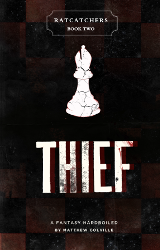If you love movies, and you love writing, eventually you start writing about movies and if you get paid to do it, they call you a critic. But really all you are is someone who loves movies, and loves writing.
If they publish your reviews in the paper, people who don’t love movies start to read them and they get a weird, twisted sense of what you’re trying to do. They’re not writers, they’re not crazy in love with film. They’re just looking for a way to spend a pleasant afternoon So they think, when they read your stuff, that you are telling them what to think. That you think your opinion and experience is objective truth, which is ridiculous.
But you probably don’t give a shit what they think. You audience is other movie nuts like you. Your writing is part of a dialog all those people are having with each other all the time. You don’t care if those people agree with you, you’re interested in the back-and-forth, you love reading new perspectives on films you love. You love going back to movies you overlooked and seeing them from a new point of view.
You and the other people in this conversation develop a common language and eventually this is called the language of film criticism, and because you’re a community you also develop consensus.
You don’t really care about what’s popular because there’s already a whole industry built around what’s popular. Popular movies don’t need awards, they already won the only award that’s important to them; money. You don’t need to convince people to go see popular movies.
So you get a reputation for being a snob, but again, this is from people who aren’t really your audience. The people who just want the choice of which movie in the 18-theater megaplex to see. They’re looking to minimize risk.
You just love writing about movies.
Roger Ebert died this week. He was one of my favorite writers and I always got a little frustrated with people who would act out when his name came up because they didn’t like…it doesn’t matter why. They didn’t like a review, or the idea that he did reviews, or whatever.
I wanted to grab these people and say “Jesus who gives a shit whether he liked the movie, look at the writing!” He was a great writer and a good journalist and he brought a journalist’s discipline to everything he wrote. He knew he could be funny, he knew he could be poetic, and he knew that both of these had to be used with taste. Meaning, only when appropriate.
I’ve written a lot of movie reviews and I always thought Ebert would like them. Some of them. But as he got older, and the movie culture in America continued to atrophy, Ebert became fascinated with what people from other cultures thought about movies. There was no shortage of middle-class white guys writing about movies, but he promoted film reviews from people in Egypt, Argentina, Spain, Chile. All over the world.
His Far-flung Correspondents, the perspective of people from wildly different cultures than his, was his last gift to us. I enjoyed reading reviews of new movies, foreign movies, and classics, from young people in distant lands discovering the rich culture of film for the first time.
I’m sad Roger is gone. I grew up with him and Gene and their wit and passion for film. They taught me a lot. I know a lot of people who say “We didn’t always agree…,” as though that means anything. As though the point is whether you agreed. The point is that you thought something, maybe something no one else thought, and maybe someone else thought something you didn’t.
Talking about agreeing or not agreeing imagines there’s a right answer. There is not. The journey is the destination.

 My first novel
My first novel My new novel.
My new novel.